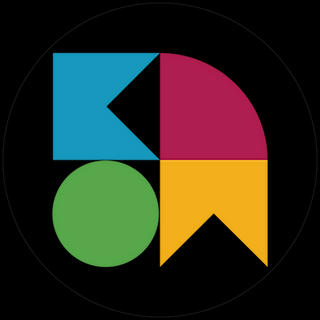Multi-stakeholder engagement and learning experiences of energy briquettes through a business model
- Urban-KNOW
- Apr 28, 2020
- 3 min read
Updated: May 18, 2020
By Shuaib Lwasa, Judith Mbabazi, Teddy Kisembo and Hafisa Namuli
The KNOW team in Kampala is grounded by a research approach to co-produce knowledge through problem-solving, by harnessing opportunities existing in local urban neighbourhoods. It is a multi-stakeholder research project that focuses on largely unemployed people in informal settlements for integration into the urban economy. A number of knowledge co-producing activities have been undertaken to set the scene for validating a business model of renewable energy that utilises readily available resources in communities. One such activity has been a stakeholder analysis and individual groups’ needs assessment to identify the capacity gaps and needs of the production groups. A business model and value chain of the whole energy briquette from waste collection, sorting, drying, carbonising, mixing of ingredients, briquette size and shape, packing, branding and marketing is underway. Capacity building activities involving community groups training other groups have been carried out to aid the scaling up and scaling out of briquettes production. The diversity of group structures as well as products notwithstanding, lessons are drawn from the diverse experiences to develop products of high quality, marketable and sustainable given the abundant raw material of waste in the communities. Quality control and management is emerging as a key determinant for the collective marketing and sustainability of the briquette market.

Above: Briquette Making Groups at a recent capacity building workshop, Image by: Ian Plakker, 2020
Community groups building capacities of other groups
Following stakeholder analysis and individual groups’ needs assessments, exchange visits were organised and the groups each got to absorb the others’ briquette making process and briquette quality. The exchange visits helped to determine the capacity gaps and needs to prioritise. One observation during the exchange visits was the distinction between the briquettes from each group in terms of ingredients, shape, size and quality. This was the basis of the synthesised capacity building activities and trainings that were developed and categorised into four trainings in the whole briquette value chain. These included:
collection, sorting, mixing, proportions of ingredients, storage, post production handling,
management and organisational skills,
small business training (business plan development, proposal writing, product development, costing, pricing, marketing, branding, advertising, record keeping) and,
fabrication of simple briquette making technology, especially environmentally sensitive and healthy techniques of carbonising without carbonisers (char drums).
A 'peer-groups training model' was adopted as groups took turn to teach and learn from each other before experts’ facilitated training workshops.
The objective of the trainings was to foster an alternative creation by encouraging production of minimum quality standard briquettes by multiple producers, using any and all material at their disposal (at the lowest cost) for both household use and to sell as a source of income. The minimum quality standards would in future be a requirement if and when the groups decided to opt for collective marketing. The briquette value chain trainings were spearheaded by Lubaga Charcoal Briquette Cooperative Society Limited (LUCHACOS), while ACTogether Federation and Urban Action Lab, Makerere University took lead on small business enterprise training and organisational and management skills training.

Above: NBMT members during Business proposal writing workshop, Image by Ian Plakker
Lessons from peer-group trainings
Peer-group learning is appreciated by the local community and provides a platform for co-learning, co-sharing and co-generation of knowledge. The groups were excited to learn the different techniques employed by the different groups involved in the briquette making and also to learn about the other local opportunities that can provide an alternative livelihood strategy like making soap, weaving and saving.
The value of familiar environment-people, physical space and relationships and partnerships cultivated over time is indispensable for knowledge coproduction. The familiar environment yields a space for freedom - freedom of speech and expression and flow of ideas that can be harnessed for knowledge generation.
Practical learning sessions are very important for alternative livelihood strategy projects like the Urban-KNOW Kampala project. All the trainings -the material collection, sorting, carbonising, mixing of ingredients all through to the finished product were practical.
Peer –group learning is a long term process and therefore, for it to be sustainable, it necessitates time - time for the groups, 85% of whom are women, to balance the learning, the briquette production and their day to day lives.
Emerging outcomes of the training
Groups have acquired skills such as briquette production, book keeping, proposal and business plan writing, product development, product branding etc. but however require continuous back stopping.
The role of researchers in protecting the researched and the co-produced knowledge from being appropriated by the government, private sector and/or scholars especially in multi-stakeholder business enterprise-based research like the KNOW Kampala project is an important outcome, including the need for researchers to address emerging power relations issues.
Questions of knowledge integration into policy are becoming more pronounced and it is imperative that researchers and decision makers find a way of correlating different perspectives on coproduced issues for proper knowledge integration
KNOW More










Comments